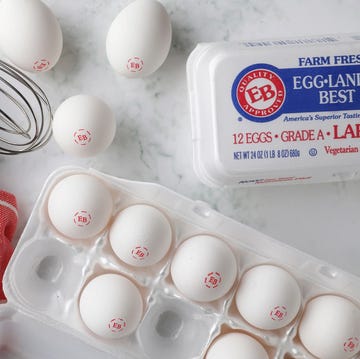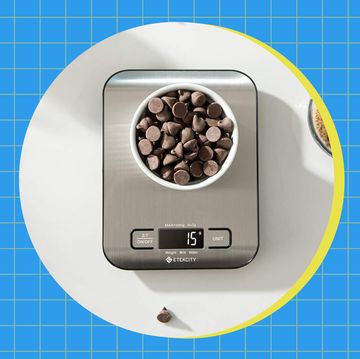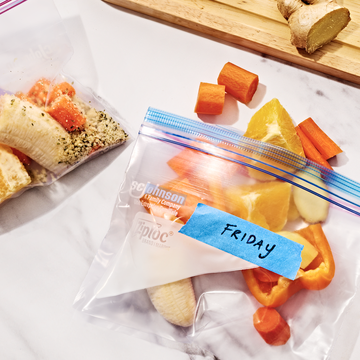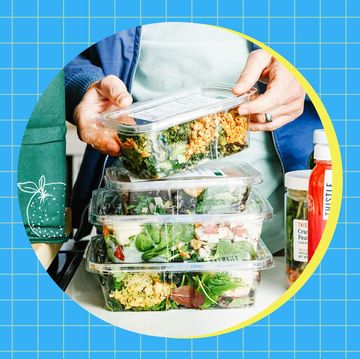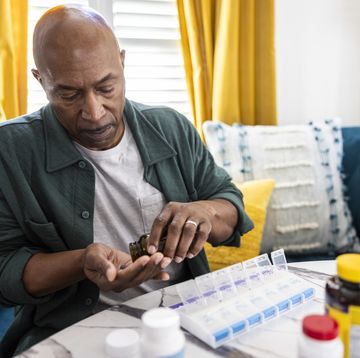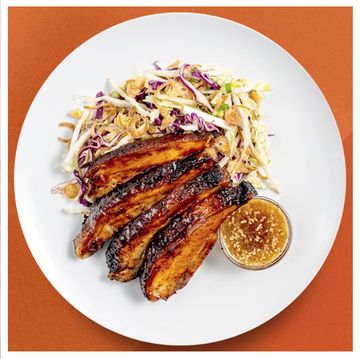That jug of 100 percent orange juice in your fridge—natural as can be, right? Just the luscious juice and pulp squeezed from fresh fruit. Or not: Many brands spike their juices with "flavor packs," essences and oils formulated to simulate the taste of, well, fresh-squeezed oranges. These "packs" contain chemicals such as ethyl butyrate, but you'd never know it from the juice's label. "Industry insiders say the formula for fresh orange flavor is as elusive as the formula for Coke," says Alissa Hamilton, Ph.D., J.D., the author of Squeezed: What You Don't Know about Orange Juice.
It's all perfectly legal. Ethyl butyrate is just one of nearly 4,000 additives that the FDA has approved for use in our nation's food supply. Without them, processed foods wouldn't look as appetizing, taste as fresh, or last as long in your pantry. But these "enhancements" also mean you don't always know what you're eating. In the case of OJ, pending class-action lawsuits have accused juice makers of misleading consumers. But you don't have to wait—we have our own verdict on additives and your health. (Want more must-have nutrition info and breaking health studies delivered to your inbox every day? Sign up for the . It's FREE!)
THE CHARGE: Artificial food coloring is dangerous
THE VERDICT: Yes, for some people
Food coloring is all about merchandising, says Bruce Bradley, a former food marketer. "Manufacturers are trying to make something beautiful out of shelf-stable ingredients," he says. But that may be a costly strategy: A study review in the Journal of the American Academy of Child & Adolescent Psychiatry estimates that 8 percent of children with attention-deficit/hyperactivity disorder may have symptoms linked to consuming synthetic food dyes.
These dyes and other artificial ingredients may also influence attention and behavior in adults, especially if they're genetically susceptible, says study author Joel Nigg, PhD, a professor of behavioral neuroscience at Oregon Health and Science University. In 2011, the FDA's Food Advisory Committee determined that artificial dyes should be evaluated further.
YOUR MOVE: See if a dye-free diet helps you focus, says Kathleen Holton, Ph.D., M.P.H., a nutrition researcher at Oregon Health and Science University. For a month, replace processed foods with additive-free, whole-food versions. Read ingredient lists carefully: Juice, dietary supplements, and gum can contain artificial coloring. Log what you eat and any symptoms you notice.
THE CHARGE: MSG makes you feel lousy and sluggish
THE VERDICT: Correct, it can
If digging into a Chinese buffet leaves your head pounding, you may be reacting to monosodium glutamate, or MSG. In a Danish study, men who consumed a drink laced with MSG were more likely to report headaches and muscle tenderness than those who quaffed a beverage flavored with salt. MSG may alter receptors on your nerve cells to trigger the aches, the researchers say.
MSG might also have lasting effects on your appetite. A study in the American Journal of Clinical Nutrition showed that adults who consumed the most MSG were most likely to be overweight. The researchers suspect that MSG may interfere with the activity of the hormone leptin, which regulates satiety. "Chronic MSG consumption may cause leptin resistance," says Ka He, Sc.D., an associate professor of nutrition and epidemiology at the University of North Carolina.
YOUR MOVE: Limit portions at restaurants. At your supermarket, check product labels; MSG can be found in many processed foods. If MSG isn't on the ingredient list, similar forms of glutamate may be present in the product under another name, such as hydrolyzed vegetable, plant, or soy protein, or autolyzed yeast extract. (Hungry for Asian food tonight? Skip the takeout and make fast, fresh, DIY versions of delivery classics.)
THE CHARGE: Sugar substitutes will mess up your appetite
THE VERDICT: That's true
Sugar substitutes slash calories from your diet, but they might alter your appetite. "Our taste for sweetness evolved to detect calories in food," says Dana Small, Ph.D., an associate professor of psychiatry at Yale University. For millennia, sensing sweetness meant that calories would soon be available to fuel metabolism.
This association has been so reliable, Small says, that simply seeing a sweet food can cause you to salivate to prepare for digestion. But as artificial sweeteners have infiltrated our diet, this association has weakened, she says. "The sweet taste no longer predicts the rewarding physiological effects of calories."
In a new study, Small's team found that when people who regularly used artificial sweeteners ate sugar, their brains showed reduced activation in the amygdala, which signals the reward value of food. If you desensitize your brain's response to sweetness, you can't depend on taste to guide how much you eat, and you may load up on extra sugar just to feel satisfied.
YOUR MOVE: If you drink more than an occasional diet soda, switch to plain water or to beverages that contain only a small amount of a natural sweetener, Small says. We like honey.
THE CHARGE: The U.S. government does not ban all unsafe additives
THE VERDICT: Guilty as charged
Even when a compound's safety is called into question by government agencies, it can still land on store shelves. Take butylated hydroxyanisole, or BHA, an additive that helps keep oily foods from going rancid. The government's National Toxicology Program says BHA is "reasonably anticipated to be a human carcinogen," but the FDA says the small amounts it permits for use in food are safe.
Although the FDA collaborates with international food safety agencies, some additives that other countries won't allow in food are permissible in the United States. Take potassium bromate, an additive used by commercial bakeries to make bread dough. In 1999, the International Agency for Research on Cancer classified potassium bromate as "possibly carcinogenic to humans." Both the European Union and Brazil have prohibited its use in flour. The EU also prohibits manufacturers from bleaching flour with benzoyl peroxide, which research shows can cause liver damage in lab mice.
YOUR MOVE: Check for BHA on the ingredient lists of foods that have oils, such as commercially made sweets and salty snacks. Avoid flour additives by eating organic bread; try Rudi's Organic Bakery (rudisbakery.com). (Do you know what's really in your food? Learn the shocking truth, then make smart, healthy swaps to your diet with the newly expanded 2012 edition of Eat This, Not That!)




